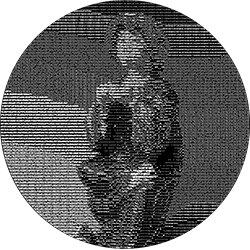Olber’s Paradox, or why is the Sky Dark at Night?
In astrophysics and physical cosmology, Olbers’ paradox, named after the German astronomer Heinrich Wilhelm Olbers and also called the “dark night sky paradox”, is the argument that the darkness of the night sky conflicts with the assumption of an infinite and eternal static universe. The darkness of the night sky is one of the pieces of evidence for a non-static universe such as the Big Bang model. If the universe is static, homogeneous at a large scale, and populated by an infinite number of stars, any sight line from Earth must end at the (very bright) surface of a star, so the night sky should be completely bright. This contradicts the observed darkness of the night.
The paradox is that a static, infinitely old universe with an infinite number of stars distributed in an infinitely large space would be bright rather than dark. To show this, we divide the universe into a series of concentric shells, 1 light year thick. Thus, a certain number of stars will be in the shell 1,000,000,000 to 1,000,000,001 light years away. If the universe is homogeneous at a large scale, then there would be four times as many stars in a second shell between 2,000,000,000 to 2,000,000,001 light years away. However, the second shell is twice as far away, so each star in it would appear four times dimmer than the first shell. The total light received from the second shell is the same as the total light received from the first shell, so each shell of a given thickness will produce the same net amount of light regardless of how far away it is. That is, the light of each shell adds to the total amount. Thus the more shells, the more light. And with infinitely many shells there would be a bright night sky. Dark clouds could obstruct the light. But in that case the clouds would heat up, until they were as hot as stars, and then radiate the same amount of light. Kepler saw this as an argument for a finite observable universe, or at least for a finite number of stars. In general relativity theory, it is still possible for the paradox to hold in a finite universe: though the sky would not be infinitely bright, every point in the sky would still be like the surface of a star.
Source: http://chaosophia218.tumblr.com

